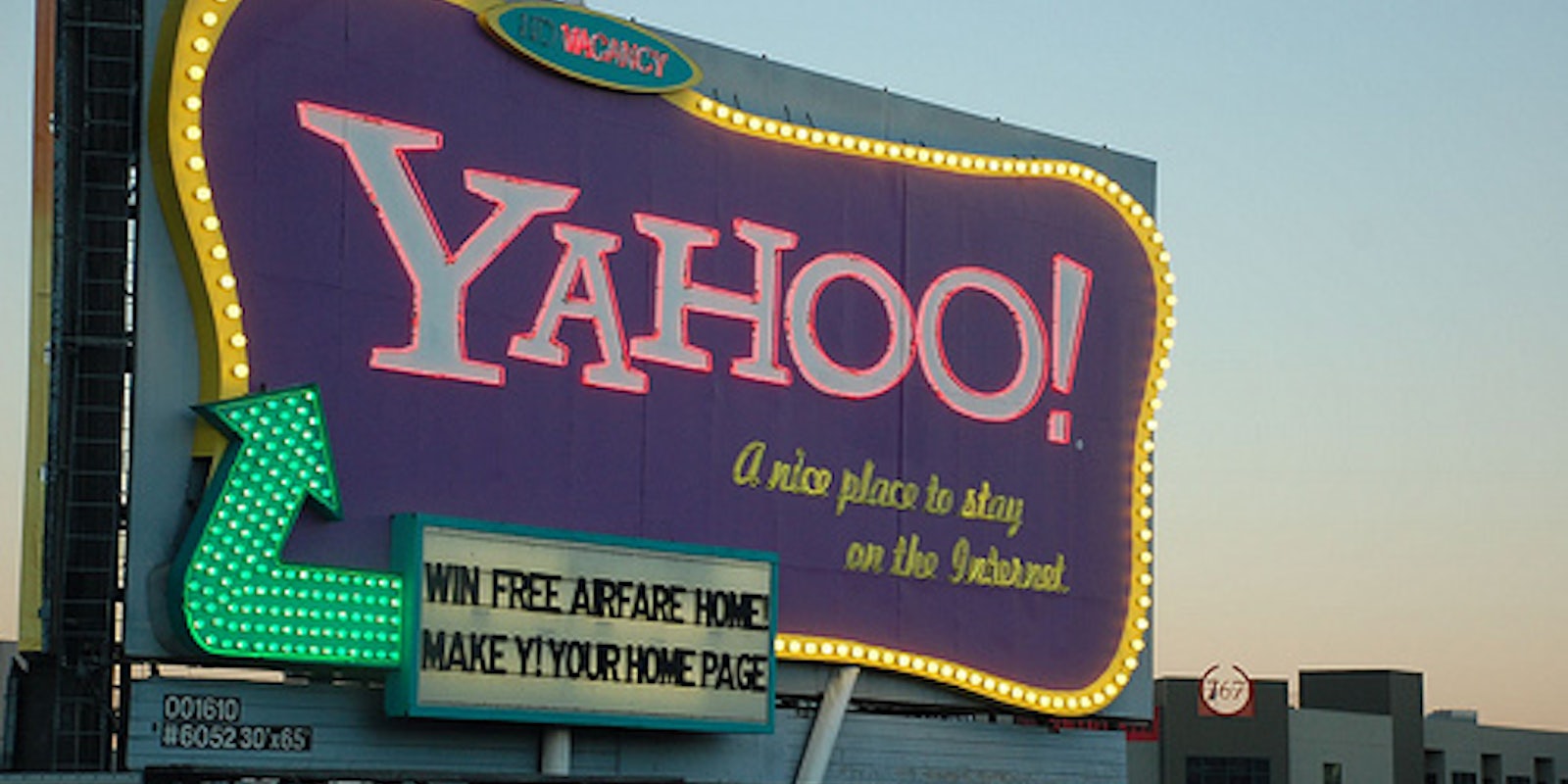When I was just an Internet-obsessed lad, I remember the Yahoo billboard going up along the freeway in San Francisco. As Yahoo’s flash-in-the-pan Web competitors crashed and burned, it stood as a sign of permanence for more than a decade. Now the iconic roadside ad is coming down.
My first reaction: Can’t the city declare it a landmark? Then my friend Chip Bayers, a partner in thoughtcrime since the long-gone days of Suck.com, pointed out that Yahoo’s billboard “was never very interesting.”
Perhaps it’s time to go. Yahoo advertised itself as a “nice place to stay on the Internet.” But we don’t stay anywhere anymore. We flit from online place to place, our visits measured in minutes.
…
One place we do spend more and more time on is Twitter. Unlike Yahoo, which has barricaded itself in an unlovely corner of Silicon Valley’s sea of office parks, Twitter’s actually based in San Francisco. So why not take over Yahoo’s billboard?
I made this suggestion, of course, on Twitter. Matt Graves, a spokesman for the microblogging network, tentatively puffed my trial balloon with a bit more air: “… a great place to tweet …?”
As my muse Kreayshawn once put it, Facebook’s like your living room, and Twitter’s like the street. Now Twitter could be on the street!
…
Then I realized this was a horrible, horrible, horrible idea. Yahoo’s billboard was boring enough to pose no threat to commuters. A Twitter come-on might cause commuters to feel an unstoppable urge to tweet at 60 miles per hour.
Twitter addiction has already ruined one man’s life, I read recently. Can you imagine the headlines if Twitter caused car crashes, not just server crashes?
“Twitter’s billboard has a body count.”
…
There has been a body count at Twitter headquarters lately. Good luck getting anyone at Twitter to buy that billboard: The company’s marketing and communications teams have seen a raft of high-level departures, most recently: Lynn Fox, an Apple and Google veteran who ran corporate PR.
Not exactly a surprise, since her boss, Sean “@SG” Garrett, left two weeks ago in what looked like a thoroughly amusing huff, and Fox once billed herself as an “@SG disciple” on her Twitter bio.
But add those to the departures of marketing head Pam Kramer and media-partnerships lead Robin Sloan, and you get the inevitable visual effect of a chain-reaction car crash.
…
At least Twitter isn’t boring. Yet. Why do Silicon Valley-types always want to make the world less entertaining?
Robert Scoble is an “evangelist” for website-hosting company Rackspace. For those unfamiliar with the profession, evangelists in the tech world are people with no apparent skills, training, education, or insight who are nevertheless given license to talk about technology. I applaud this, of course, given the current state of the economy and the unemployment rate.
Anyway, Scoble suggests that Google+, already the most boring social network on the planet, will turn into some kind of enterprise tool for annoying your fake work friends instead of your fake real-life friends. Facebook, he says, will follow suit.
He’s probably—and—sadly right.
The upside: More time to spend watching virtual car crashes on Twitter!


